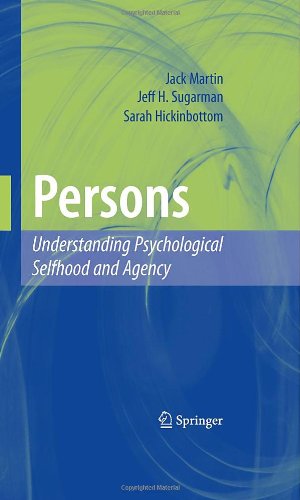

Most ebook files are in PDF format, so you can easily read them using various software such as Foxit Reader or directly on the Google Chrome browser.
Some ebook files are released by publishers in other formats such as .awz, .mobi, .epub, .fb2, etc. You may need to install specific software to read these formats on mobile/PC, such as Calibre.
Please read the tutorial at this link: https://ebookbell.com/faq
We offer FREE conversion to the popular formats you request; however, this may take some time. Therefore, right after payment, please email us, and we will try to provide the service as quickly as possible.
For some exceptional file formats or broken links (if any), please refrain from opening any disputes. Instead, email us first, and we will try to assist within a maximum of 6 hours.
EbookBell Team

0.0
0 reviewsPersons
Understanding Psychological Selfhood and Agency
Jack Martin, Jeff Sugarman, and Sarah Hickinbottom
At its core, psychology is about persons: their thinking, their problems, the improvement of their lives. The understanding of persons is crucial to the discipline. But according to this provocative new book, between current essentialist theories that rely on biological models, and constructionist approaches based on sociocultural experience, the concept of the person has all but vanished from psychology.
Persons: Understanding Psychological Selfhood and Agency recasts theories of mind, behavior, and self, synthesizing a range of psychologists and philosophers to restore the centrality of personhood—especially the ability to make choices and decisions—to the discipline. The authors’ unique perspective de-emphasizes method and formula in favor of moral agency and life experience, reveals frequently overlooked contributions of psychology to the study of individuals and groups, and traces traditions of selfhood and personhood theory, including:
Persons represents an intriguing new path in the study of the human condition in our globalizing world. Researchers in developmental, social, and clinical psychology as well as social science philosophers will find in these pages profound implications not only for psychology but also for education, politics, and ethics.